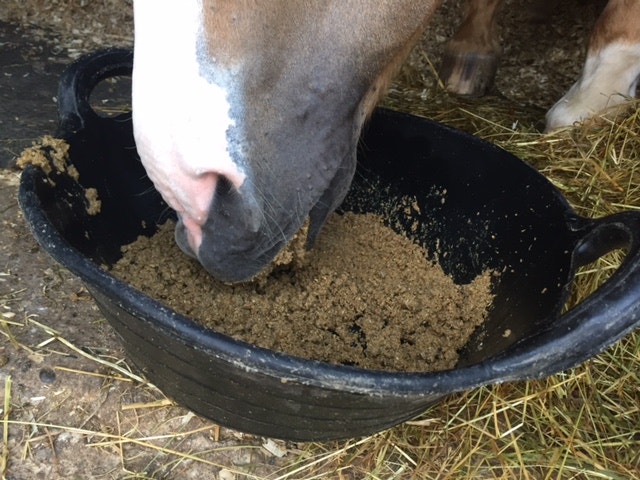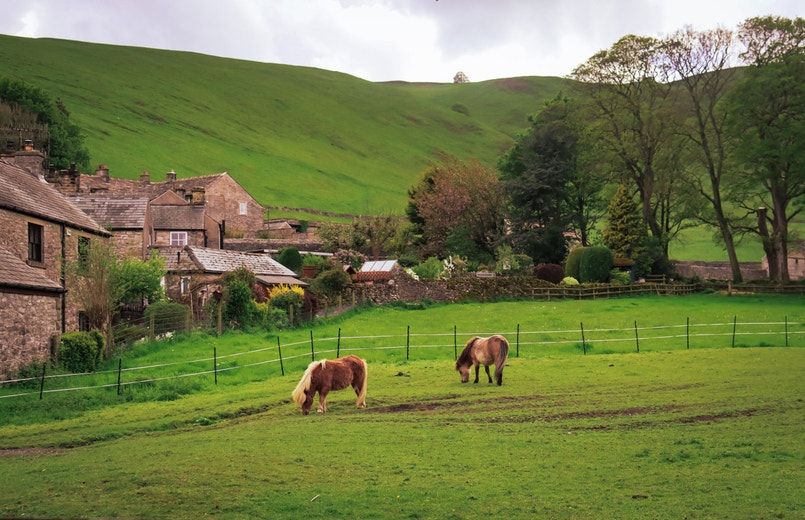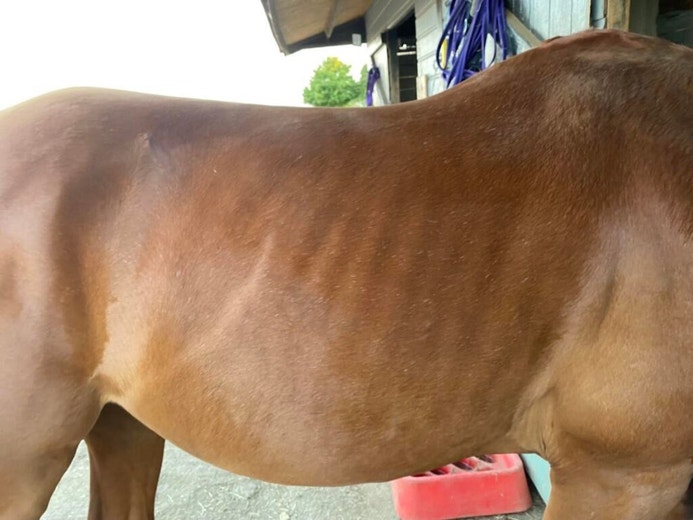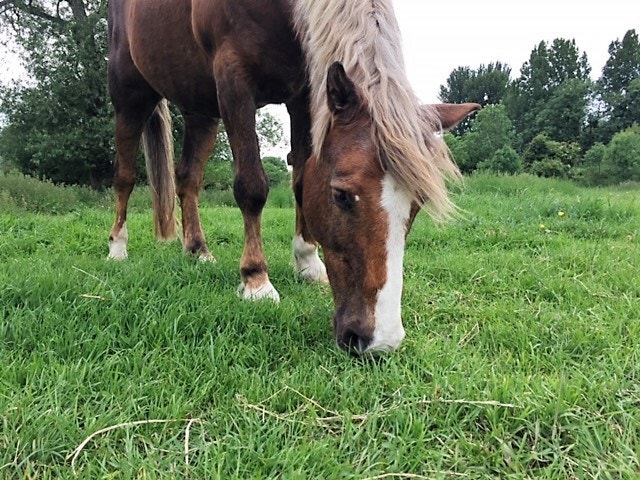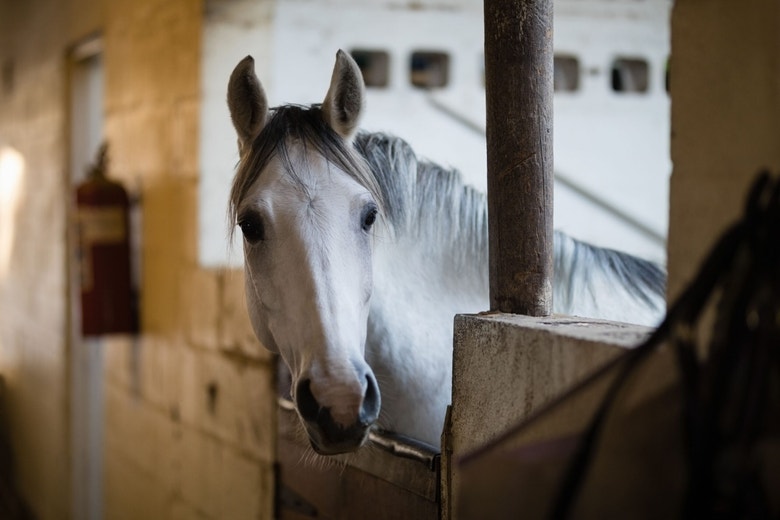Easy ways to feed horses prone to gastric ulcers
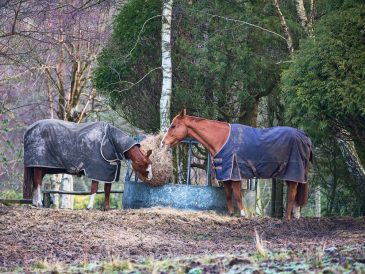
Gastric ulcers(open in new tab), (or EGUS) are widely recognised as a common condition in horses and ponies and cause huge concern for horse owners.
But feeding and managing those prone doesn't have to be difficult. Here are some of our top tips for managing your horse’s nutrition when prone to gastric ulcers:
Provide ad-lib access to forage where possible
Saliva provides a natural buffer to stomach acid but unlike people, horses only produce saliva when they chew. Feeding forage ad lib enables your horse to chew consistently and therefore produce more saliva.
For horses who need to lose weight, feed at least 1.5% of current bodyweight (dry matter) as forage per day. On average, this equates to approximately 9kg of hay (or 11kg if you intend to soak it) or 11-12kg haylage on an ‘as fed’ or ‘fresh weight’ basis (the amount you weigh out) for a 500kg horse without grazing. Apply logic and reduce according to the number of hours grazing – e.g. provide half the amount if they are out all day and stabled overnight.
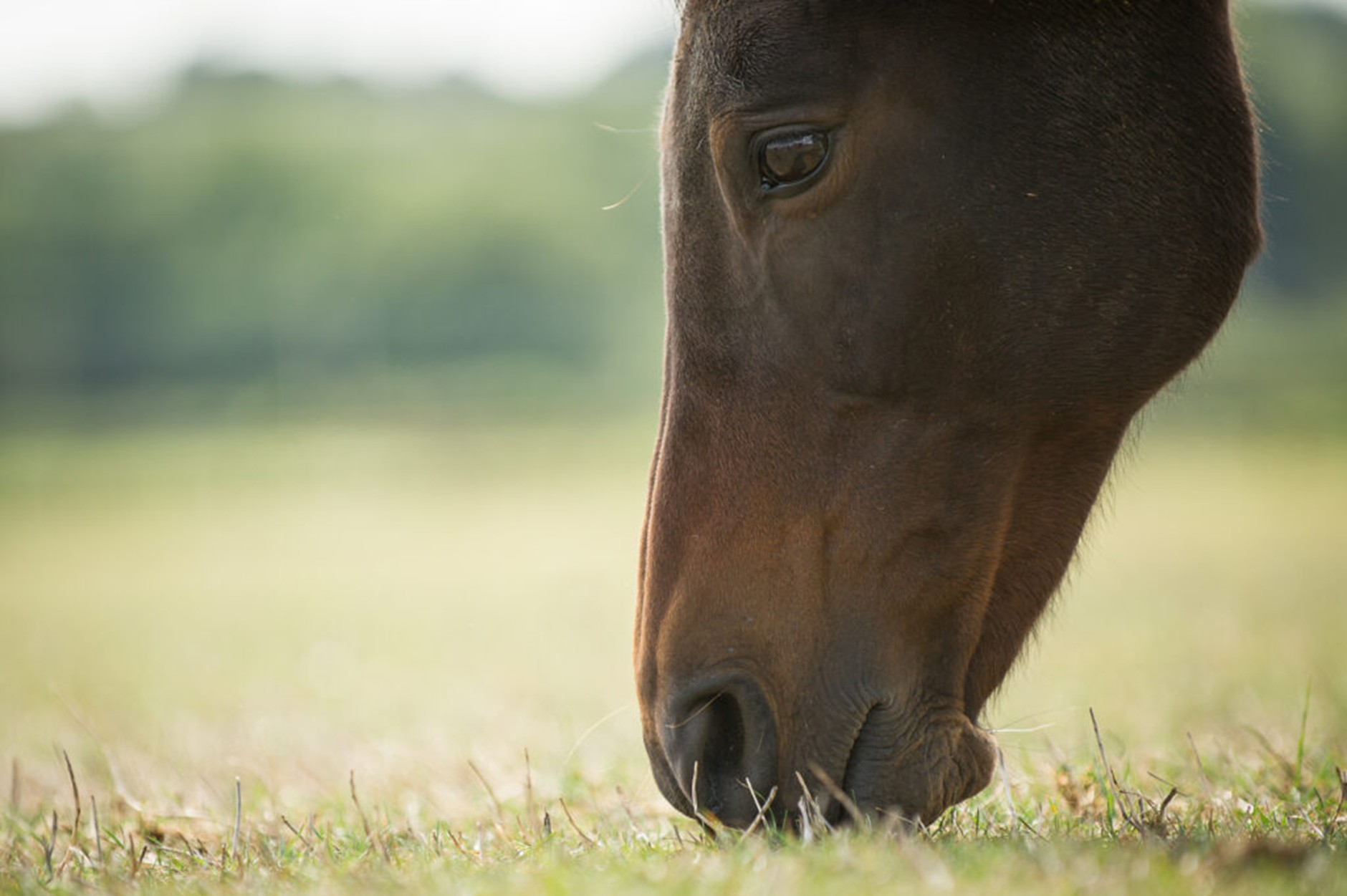
Increase turn-out
Increasing your horse's turn out time will help to encourage foraging and in turn the flow of saliva which helps to buffer and neutralise the stomach. Provide as much turnout possible. The incidence of gastric ulcers seems lower in horses at pasture.
Feed forage or a small short chopped, fibre based meal before exercise
A high fibre meal can help in producing a ‘fibre mat’ which helps to protect the stomach lining from gastric splashing. For more information check out our infographic(open in new tab) on this topic.
Try to spread meals throughout the day
Several small meals are better for your horse's stomach than one or two large feeds.
Provide plenty of water at all times
A lack of water has been shown to increase the risk of ulcers in horses.
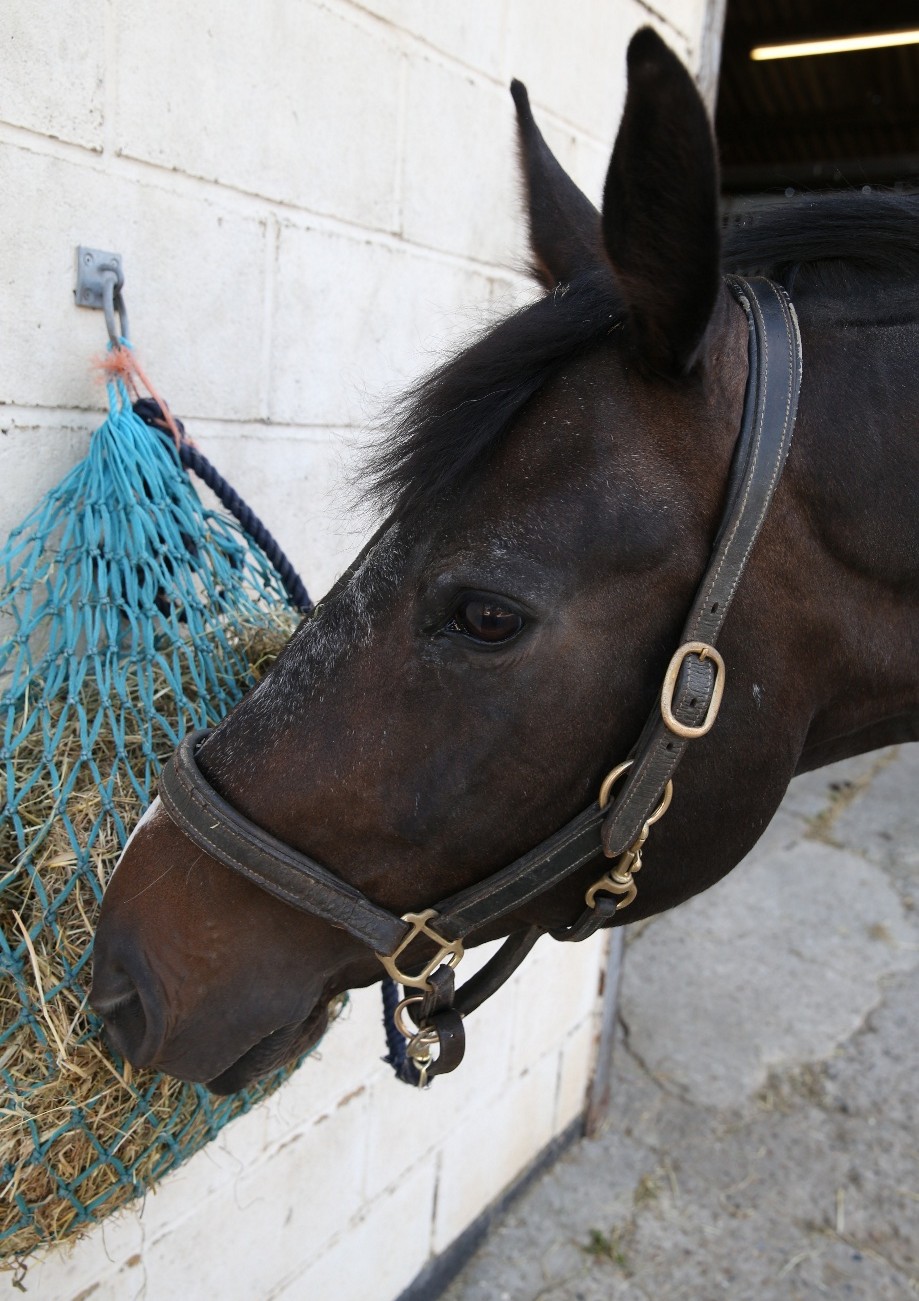
Create hay stations
A number of smaller hay stations scattered around the stable will encourage movement - you can also use double-netted, part filled hay nets to help to extend your horse's eating time when compared to one large net.
Avoid leaving your horse for prolonged periods without forage
Horses are adapted to graze for up to 16 hours a day, so it's important that you don't leave them without forage for too long. In one study, periods of more than 6 hours without forage significantly increased the risk of non-glandular ulcers.
Choose feeds which are low in sugar and starch
Balancers(open in new tab) are the ideal solution for those able to maintain weight on forage alone. Balancers provide a concentrated source of vitamins, minerals and quality protein but due to the low feeding rate, a negligible level of energy (calories), starch and sugar.
If your horse/ pony requires more calories, we recommend looking for feeds lower in starch and sugar, with calories from fibre and oil rather than cereals. Aim to feed less than 1g of non-structural carbohydrate (NSC: starch + water soluble carbohydrate) per kilogram of bodyweight per meal and ideally less than 2g NSC per kilogram bodyweight per day. For a 500kg horse this equates to less than 500g of NSC per meal and ideally less than 1kg of NSC per day.

Supplements
Some owners find using well-formulated supplements such as SPILLERS Ulca Ease(open in new tab) a game changer for their horse. Ulca Ease contains ingredients which help buffer stomach acid, help maintain the delicate mucosal lining of the stomach and the mucus that lines the digestive tract. For horses prone to gastric ulcers, choose ingredients which target stomach health (rather than hindgut health) and always feed a suitable base diet first.
Avoid using stalky, sharp chopped fibre as the sole forage supply
Due to the coarse nature of the fibre this sort of forage may damage and irritate the stomach lining. Look for soft, short-chopped chaffs such as SPILLERS Alfalfa-Pro Fibre(open in new tab).
Add chopped fibre to every meal
Especially alfalfa, which has been shown to help buffer gastric acid. The high protein and calcium content in alfalfa is thought to help buffer stomach acid. Find out more about the benefits of alfafa here(open in new tab).
Find out more about gastric ulcers on our nutritional pages(open in new tab), and it you suspect your horse or pony may be suffering from gastric ulcers contact our Care Line (open in new tab)on 01908 222 888.
Updated 23.10.2025
